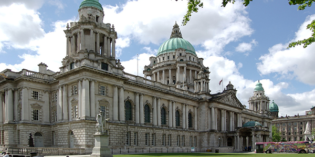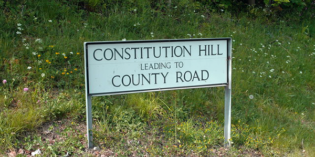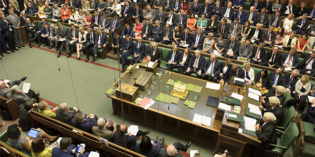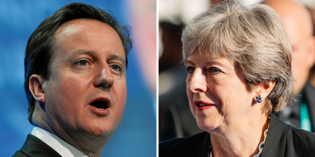Tag: Brexit

European elections 2019: what will happen in the East of England region?
Traditionally this is a Conservative region at Westminster elections. Yet the East of England is strongly Eurosceptic and UKIP came top here in the last European Parliament elections in 2014, although the Tories hung on (just) to three seats. The Brexit Party now look certain to take over the UKIP vote and comfortably come first: on current polls they are guaranteed three of the region’s seven seats, and possibly one more. The latest polling indicates that Labour and the Liberal Democrats look assured of a single seat each. So the main uncertainty hangs on just how dominant the Brexit Party vote will be, whether the Tories’ slump means that they lose all of their seats here, and whether the Greens can pick up a seat. With voters able to cast only a single vote for a party list, the Democratic Audit team reviews likely outcomes for the parties and the main potentially electable candidates.

European elections 2019: what will happen in London?
With eight seats to play for, London is the jewel in the crown of the European Parliament elections, and the area certain to get most media attention. Long a bastion of Remainers (voting 60:40 to stay in Europe in 2016) the capital has also been increasingly strong for Labour in recent years. However, Corbyn’s ambiguity over his EU stance seems to have recently begun to erode the party’s standing, especially for the European Parliament elections. Two recent polls give the Liberal Democrats two seats, and one has them beating Labour into first place. Brexit Party poll ratings are relatively weak in the capital, but they are still on track to win two seats. The Greens and Tories seem sure of winning a seat each. And Change UK still has some chance here. With voters able to cast only a single vote for a party list in this PR election, the Democratic Audit team reviews the likely outcomes for the parties, and looks at who the potentially electable candidates are.

Three questions ahead of Northern Ireland’s local elections 2019
Northern Ireland votes in local council elections on Thursday, 2 May. These elections take place while the Northern Ireland Assembly remains dormant, the Brexit process raises seemingly unresolvable questions about the Irish border, and in the aftermath of the murder of journalist Lyra McKee. Jamie Pow previews the elections and outlines some key questions they highlight for Northern Irish politics.

Does the House of Commons have power without influence?
The impasse over the Withdrawal Agreement has highlighted the inability of the House of Commons to shape the substance of the Brexit deal. There is a growing sense of frustration at the apparent unwillingness of MPs to face up to the limited choices before them, writes Jack Simson Caird. A key lesson from the Article 50 process is that the UK needs a parliamentary system which is more oriented towards consensus and that is less adversarial, he concludes.

A Brexit Assembly offers a way of overcoming the current deadlock
Brexit needs its own dedicated assembly, a Brexit Assembly, argues Hjalte Lokdam. The Brexit process has revealed the difficulty of addressing a question of such extraordinary constitutional and societal significance within the ordinary parliamentary process. A Brexit Assembly of extraordinary representatives dedicated only to Brexit offers a way of overcoming the current deadlock.

This government has already lost the confidence of the House of Commons: the response should be to replace the government, not to neuter parliament
The government and Parliament cannot agree how to proceed with Brexit. For some, the solution is for the government to prorogue Parliament and implement its Withdrawal Agreement without the confidence of the Commons. David Howarth argues that given the Fixed Term Parliament Act means a general election will not necessarily follow from such a loss of confidence, a new government formed by MPs from across the Commons is a viable option.

A tale of two failures: poor choices and bad judgements on the road to Brexit
How did we get where we are on Brexit? Many major political events are shaped by institutions and long-term social changes, but the political choices of leaders matter too. Ben Worthy assesses how the short-term decisions of David Cameron and Theresa May have led to this avoidable Brexit mess.

Brexit and devolution in England: what’s at stake
The debate on Brexit has spurred discussion about how the UK’s exit from the EU could affect the devolved nations (Scotland, Wales and Northern Ireland). But, writes Arianna Giovannini, the impact on England is also important to address, as the lack of a coherent devolution policy means that Brexit could have profound institutional, economic and political effects on the largest nation of the UK.

Book Review | National Populism: The Revolt Against Liberal Democracy by Roger Eatwell and Matthew Goodwin
In National Populism: The Revolt Against Liberal Democracy, Roger Eatwell and Matthew Goodwin offer a concise examination of the rise of national populism, seeking to challenge some of the established views regarding this political shift. While elements of the book’s analysis do engage in simplification, Simon Kaye nonetheless finds this a succinct, striking and thought-provoking work.

Labour’s political calculations: explaining the party’s muddled policy on Brexit
Why is Jeremy Corbyn ignoring calls for a second referendum, despite these being backed by a substantial part of his party’s membership, as well as by non-members? Eric Shaw explains the factors affecting Labour’s inability to agree on a clear and feasible Brexit policy, and warns that inevitably divisive decisions will have to be taken.


 Democratic Audit's core funding is provided by the Joseph Rowntree Charitable Trust. Additional funding is provided by the London School of Economics.
Democratic Audit's core funding is provided by the Joseph Rowntree Charitable Trust. Additional funding is provided by the London School of Economics.